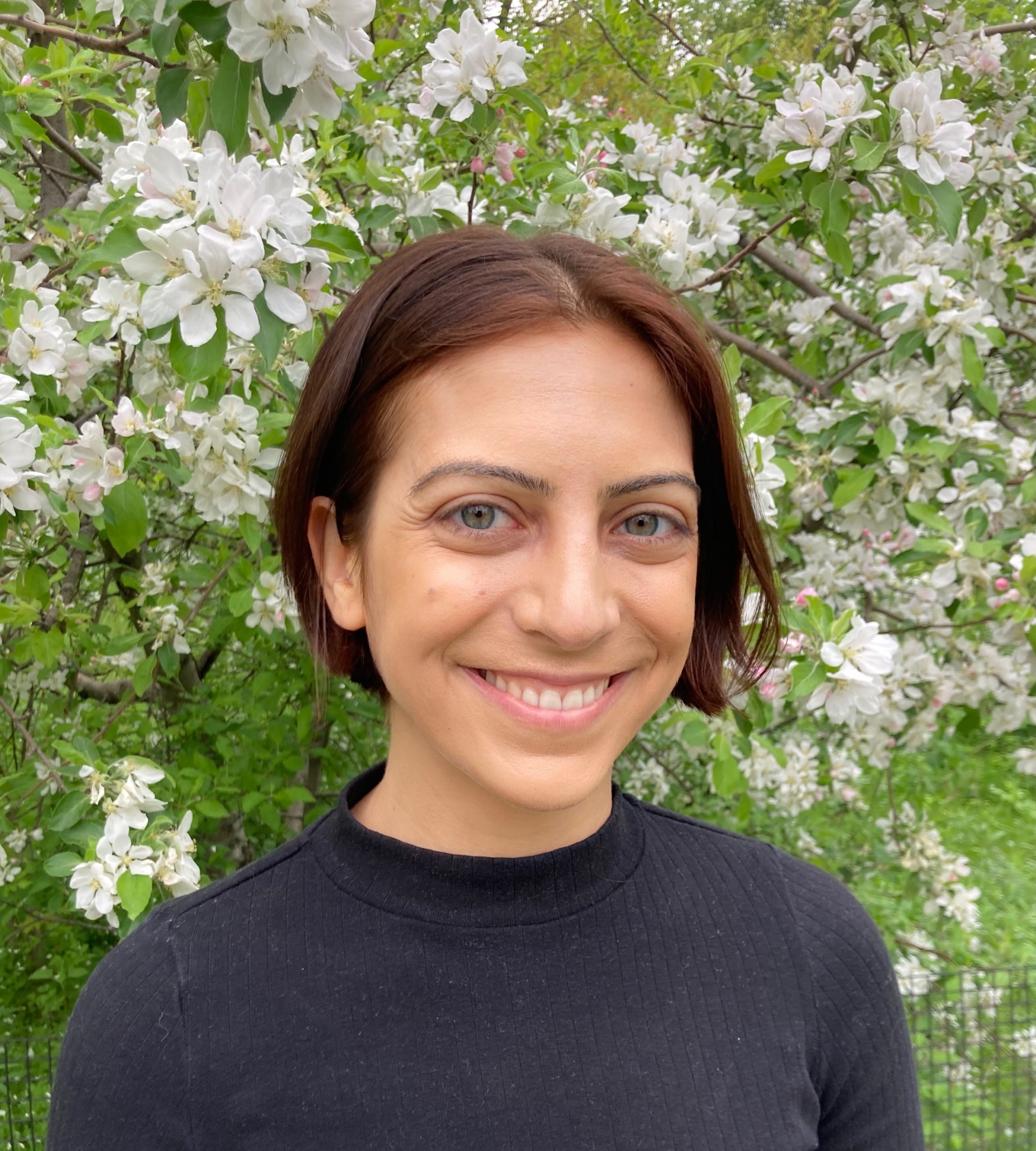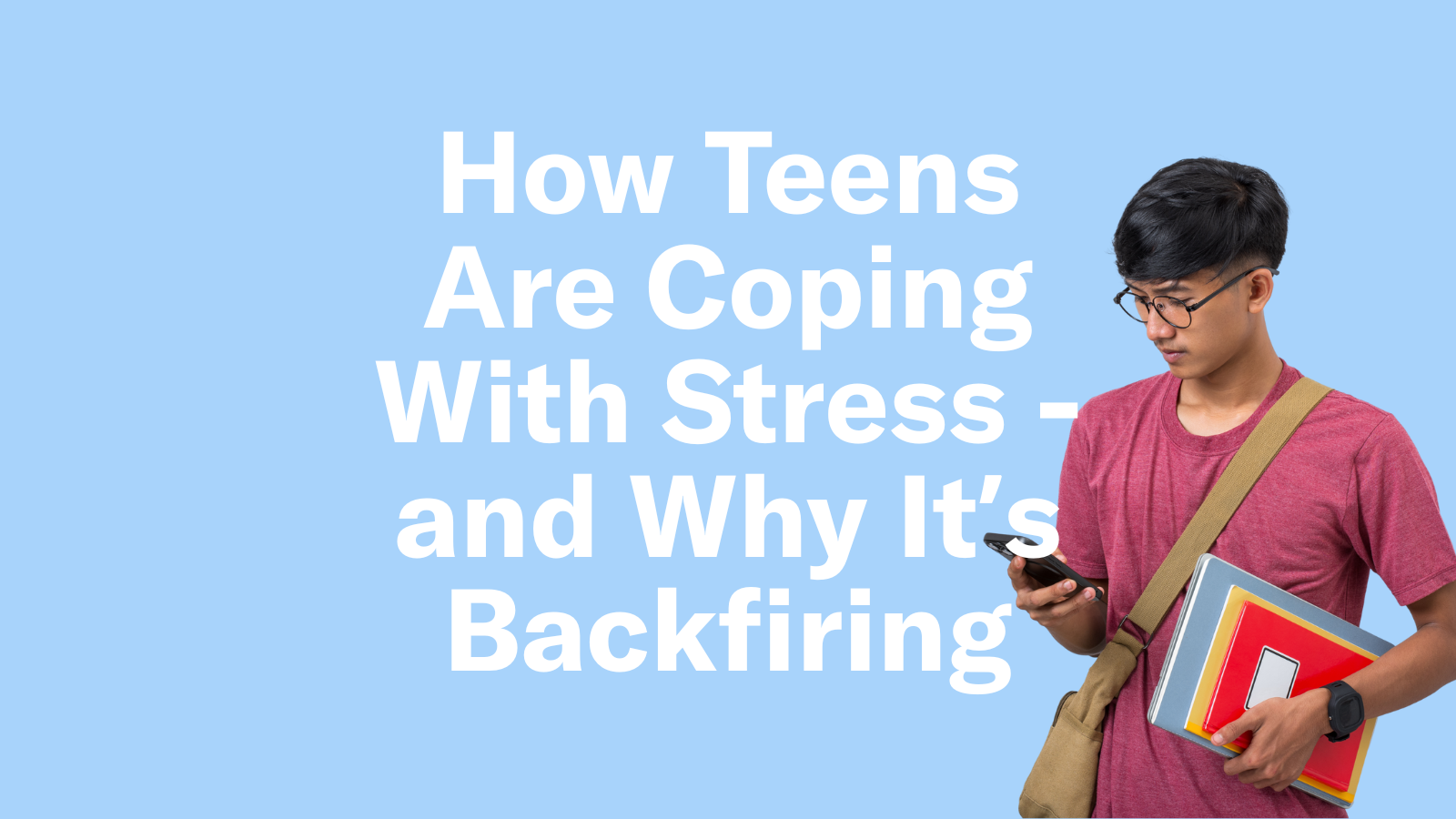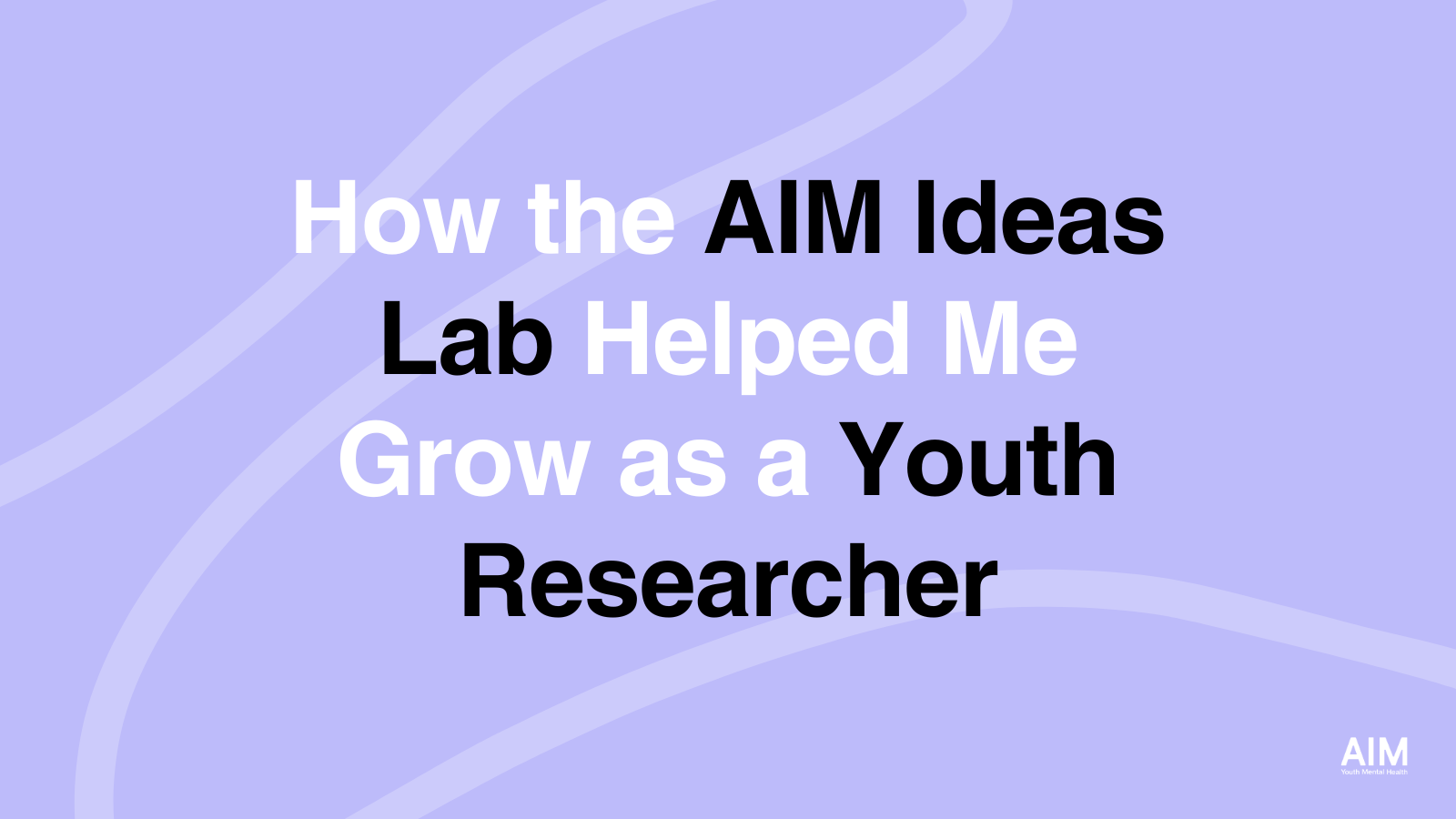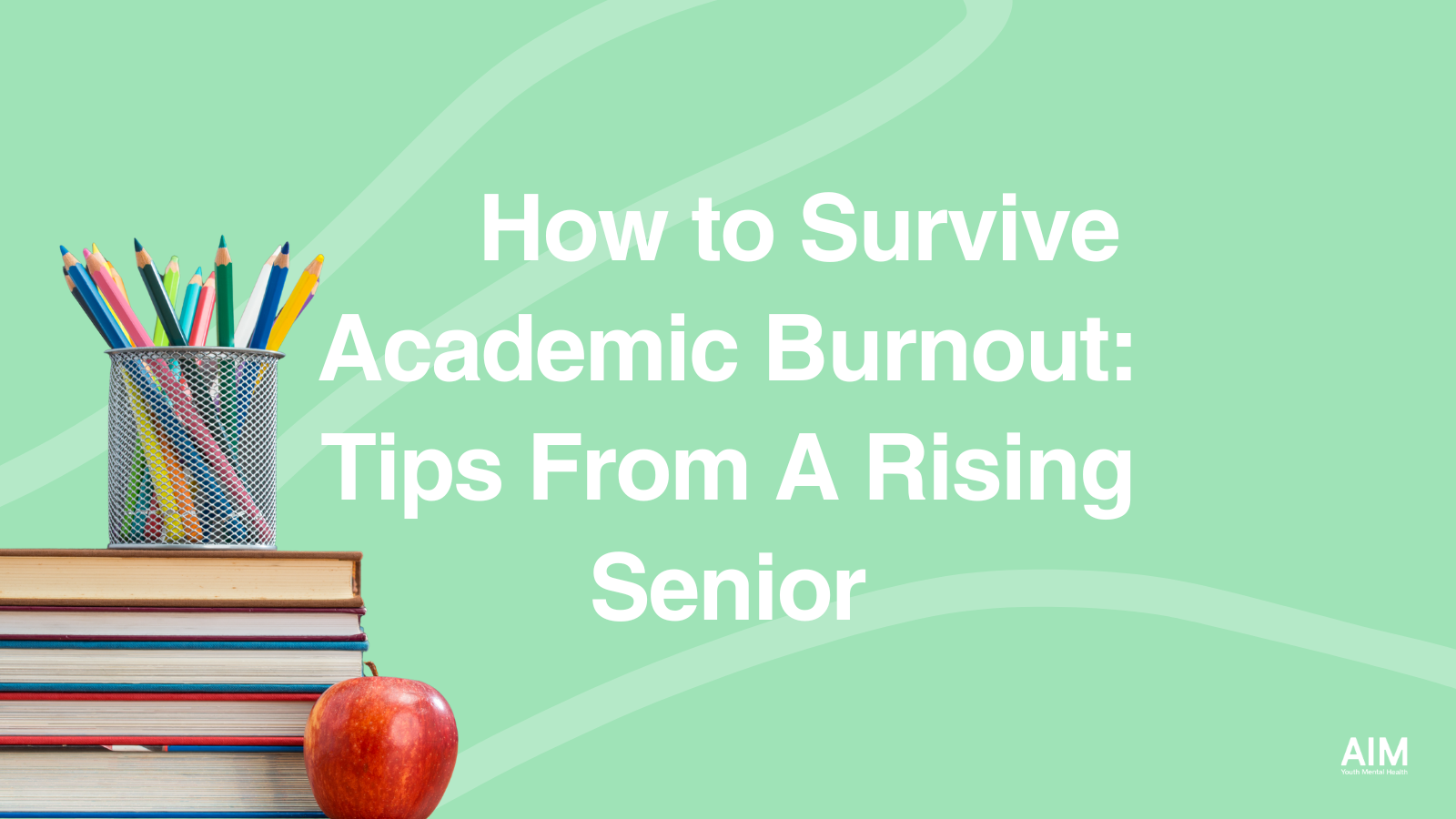Updates on the latest, ground-breaking youth mental health research funded by AIM.
By Meadowlark Monaghan, AIM Youth Advisory Board Member
Welcome to Research Updates! A new series where we share interviews with our doctors and fellows conducting groundbreaking research on all aspects of youth mental health.
It’s no secret that we are amid a national emergency in regard to youth mental health. While research has given us some great insights into evidence-based coping strategies and mental health practices, clearly, something about our dissemination of these tools and our behavioral healthcare model at large is failing.
The research community (and frankly, with the wave of destigmatization efforts following COVID, the population at large) is fiercely looking for and debating over the best ways to change this. What structures can we set in place to teach youth social-emotional regulation skills? How do we make mental wellness advancements to entire generations? Where do we even begin?
One seemingly obvious yet perpetually overlooked solution is to ask the folks providing the care themselves.
“In order to be able to effectively care for children and families who need a lot of support, the people who care for those children and families also need a lot of support,” which is exactly where our Implementation & Equity Grantee, Dr. Briana Last, and her community-based, participatory research study comes in.
You may be familiar with the “you can’t pour from an empty cup” analogy to caring for your mental health in order to care for others… well, Dr. Last is looking into exactly how we can make supportive, structural changes to support the folks providing mental health care to youth and families.

Dr. Last’s implementation science project seeks to support clinicians in implementing evidence-based practices. Using mixed methods, she plans to engage youth-serving clinicians in New York State’s public mental health clinics to examine structural and pragmatic barriers to implementing evidence-based practices. Informed by this contextual inquiry, she plans to develop a scalable, empirically driven tool to support clinicians’ EBP use and identify the conditions that optimize the tool’s benefits for real-world clinical practice.
Today, we caught up with Dr. Last to hear more about her research and how she sees the future of behavioral healthcare overcoming systemic changes to provide greater access to care for all.
Hi Dr. Last! Tell us about your study.
This study is multifaceted. The first stage of the study involved getting a better sense of what psychotherapists serving publicly insured clients in New York City do to prepare for client sessions. Psychotherapists need time between client sessions to reflect; to seek resources and support from colleagues and supervisors; and to develop a session plan. To my surprise, there has not been too much research on the topic of session planning. This is despite the fact that most treatment manuals and best clinical practices encourage session planning as a core part of what makes care high-quality and effective. So, the first step of this project was an exploratory qualitative study with New York City therapists serving publicly insured clients.
My team just completed and submitted a paper, which describes therapists’ current session planning practices as well as the barriers and facilitators to session planning. We learned that therapists face a lot of structural barriers to session planning and that they want a lot more support to do the work they feel their clients deserve.
In addition to the structural barriers that therapists face, they also described wanting more clinical resources and tools that are free, user-friendly, and easily accessible. That fits nicely with the next stage of the study, which is to design free tools to support therapists’ session planning. We just wrapped up some focus groups to get a better understanding of what kinds of tools and resources therapists want specifically.
How did this study come about for you?
This study is inspired by my own clinical experiences as well as by my research with public mental health clinicians in Philadelphia, where I did my graduate work. As a therapist, I know I need a lot of time and support to think through how to best care for my clients. This is particularly true when I’m working with clients who not only face a lot of clinical challenges, but who also have a lot of social needs due to structural oppression and economic disadvantage. Through the work I have done (and the work my PhD advisor Rinad Beidas has done) in Philadelphia, I heard the same thing from therapists serving publicly insured clients. In order to be able to effectively care for children and families who need a lot of support, the people who care for those children and families also need a lot of support.
What are some of the most common barriers you’re seeing to implementing evidence-based practices in clinical settings?
Unfortunately, there are many!
The biggest barriers are definitely structural. Our systems are not adequately funded to support providers and clients. In order for our systems to have the capacity to effectively deliver evidence-based practices, we need to totally revamp the way we invest in mental health services.
Therapists serving the highest-need clients need ongoing training, consultation, and clinical support. They need more time to be able to do this kind of careful, reflective, and research-based clinical work.
In order for clinics to be able to offer these time-intensive and costly resources to their providers, they need additional funding. Our systems need to invest in not just reimbursing providers for “billable hours,” but for the wide array of clinical activities they engage in to ensure that clients receive the highest quality services.
At the same time, there are certainly many ways that researchers can design efficient and helpful tools and resources to support public mental health therapists’ use of evidence-based practices. So, while I see many of the barriers as structural, I think clinical scientists have a significant role to play in designing and disseminating evidence-based tools and resources to support providers.
What does the session planning tool for clinicians look like so far? How does it overcome those barriers?
Based on the feedback we’ve received from our focus groups, we’ve learned that therapists want a variety of tools and resources. Right now, my research team and I are specifically examining how we can design tools to support therapists’ case conceptualization and session planning practices. Therapists in our focus groups have liked our case conceptualization-based tools, so we’re hoping to test different versions of the tools soon after we incorporate their feedback.
One thing I’ve learned from my time working within public mental health systems is that we as researchers have spent a lot of time training therapists in specific evidence-based treatments and clinical techniques. These efforts have been crucial to ensuring that therapists know the right techniques to support their clients. At the same time, we’re learning that we also need to emphasize how to train providers in careful assessment, conceptualization, treatment and session planning, and the thoughtful integration of treatments and techniques to personalize treatment for each client. I, like many researchers, have developed a growing interest in training and supporting providers in these other extremely important evidence-based practices.
What are some of the evidence-based practices you are working with?
Evidence-based practices are a wide variety of practices that are supported by clinical and research evidence. Most clinical science research has focused on the dissemination and implementation of specific evidence-based treatments or techniques. Those treatments are likely familiar to most people by now—cognitive behavioral therapy (CBT), dialectical behavior therapy (DBT), or child-parent psychotherapy (CPP), etc. There is a lot of scientific evidence to suggest that these treatments can improve mental health outcomes for specific mental health challenges.
As I mentioned, there are also a variety of clinical practices like assessment, case conceptualization, treatment and session planning, and outcome monitoring that are just as important to clinical practice and to improving mental health outcomes. My work as of late has focused on these practices, particularly case conceptualization and session planning.
You’ve conducted research previously on evidence-based practices effectiveness when provided in urban, community settings, and now this research is looking into bringing a human-centered design approach to New York based clinical settings. How do you see the role of community playing out in youth mental health rehabilitation? What is the importance of bringing community-driven approaches into behavioral science?
The people who are going to be most impacted by the interventions and support researchers develop should always play a role in their design and implementation. In order for our science to have sustainable real-world impact, we need to develop and test our interventions and supports in real-world settings. One major reason why we are not seeing the impact that we should is because our practices were developed without the sustained input of the people who interact with them everyday—that includes both the providers and the clients. We need to change that if we want to improve population-level mental health.
Is there anything else about the research that you want folks to know?
I feel incredibly lucky and grateful for the therapists who have taken the time out of their busy schedules to engage in my research. They are doing one of the hardest jobs in the world and if I can say at the end of my (hopefully) long career that I contributed to making their jobs easier, better, and more helpful to the clients they serve, I will consider it a success.
______________________
About the Author
Meadowlark Monaghan (she/hers) is a consultant using her knowledge gained as a mental health professional to act as a liaison between brands, creators, + online communities with the field of psychology and mental health. She also co-hosts the personal development podcast, Thoughts May Vary. Her work has been seen with Madhappy, Local Optimist, The Mayfair Group, Lonely Ghost, AIM Youth Mental Health, NAMI San Diego and more.






2 Responses
This article was really informative. I will share this at work today. Thank you!
Interesting!